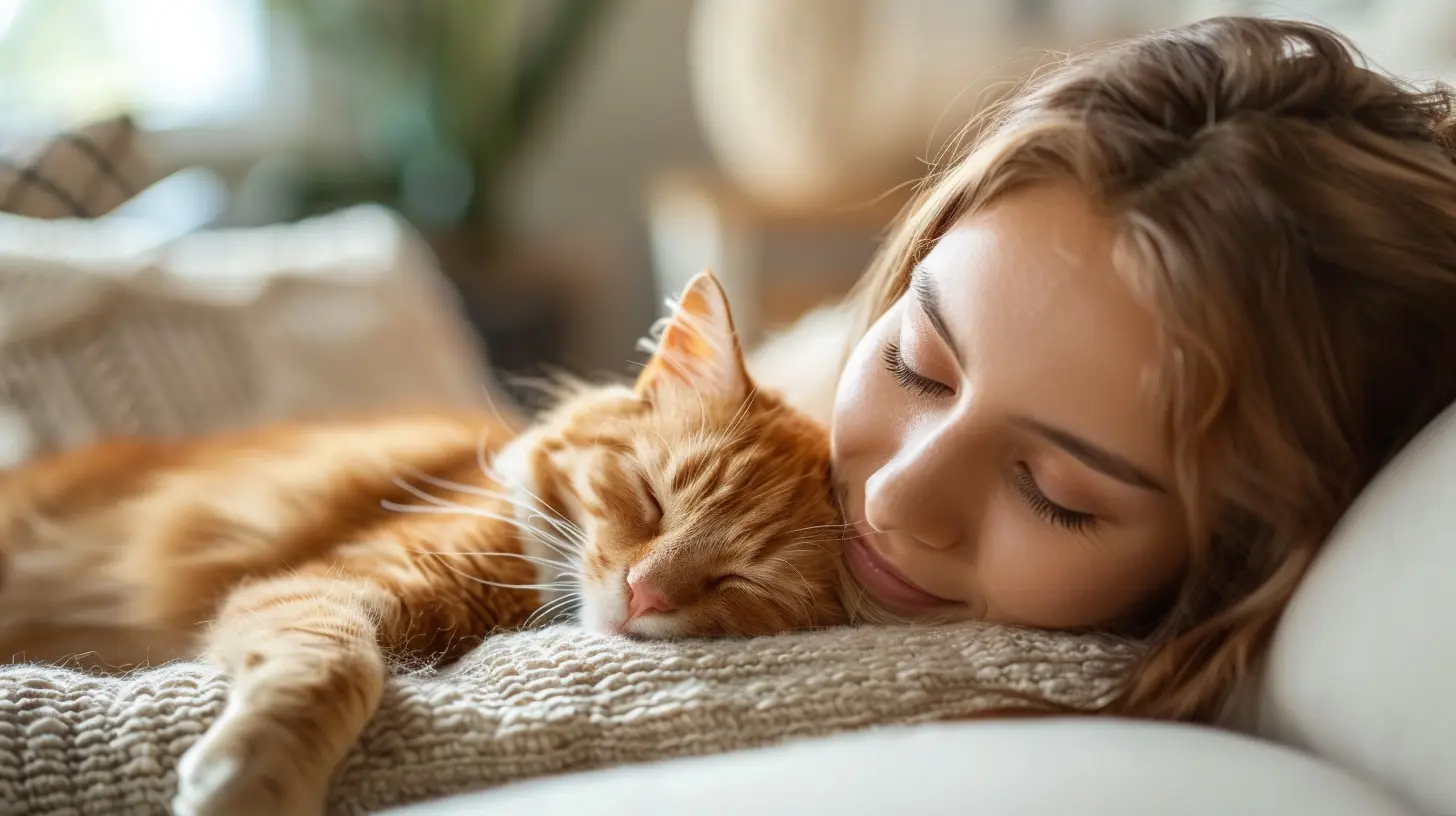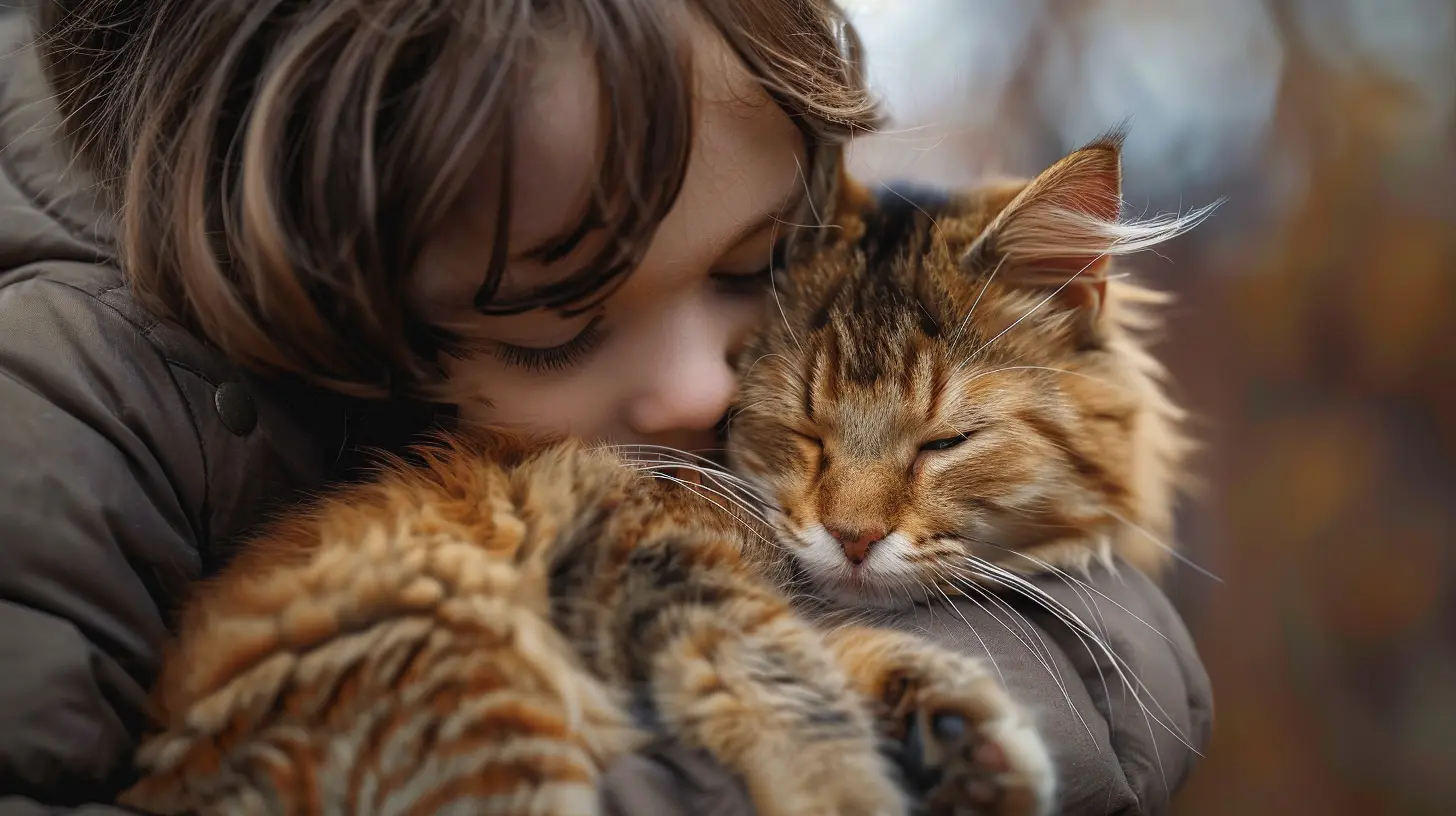The Role of Pets in Stress Reduction: Emotional Support from Furry Friends
10 August 2025
Let’s be real—stress is everywhere. From work emails at midnight to traffic jams that test our patience, modern life has a way of turning up the pressure. But imagine coming home after a long day and being greeted by a wagging tail or soft purring. It’s like instant therapy, right? There’s a magical power in those furry cuddles that can melt away our worries. Welcome to the world where pets become emotional superheroes.
In today’s post, we’re going to chat about something we often feel but rarely think about deeply: how our pets help us manage stress. This isn’t just some fuzzy theory; science backs it up. So grab your coffee (or tea!), curl up with your four-legged buddy, and let’s dive into why pets might just be the best prescription for the chaos of life.
Why We’re So Stressed in the First Place
Before we sing the praises of our furry companions, let’s understand the villain in this story—stress. Whether it’s work, relationships, financial pressures, or health concerns, life seems to toss curveballs our way daily. Over time, chronic stress can take a serious toll on our mental and physical health. Anxiety, depression, insomnia, high blood pressure—you name it.Sure, yoga and meditation help. But not everyone vibes with silent breathing exercises or downward dog poses. Sometimes, what we really need is a literal dog wagging his tail like we just won the lottery.
The Science Behind Pet Love & Stress Relief
It’s not just wishful thinking—interacting with pets really does help lower stress levels. When we hug, pet, or even just look at our pets, something magical happens in our brain chemistry:- Oxytocin levels rise (that’s the love hormone, making us feel calm and connected)
- Cortisol levels drop (bye-bye, stress hormone!)
- Serotonin and dopamine increase (hello happiness)
It’s like a mini spa treatment for your brain. Pets can actually recalibrate your entire mood with something as simple as a snuggle or a goofy tail-chasing session.
Emotional Support Animals vs. Pets: What’s the Difference?
You’ve probably heard the term emotional support animal (ESA) tossed around. While all pets can offer emotional comfort, ESAs take it to another level.- Pets: Offer companionship and general well-being. Their love is unconditional, but they’re not officially trained.
- Emotional Support Animals: Prescription-only from a licensed mental health professional. They provide therapeutic benefits for mental health conditions like anxiety, PTSD, or depression, but aren’t necessarily trained like service animals.
Still, whether your pet is certified or not, they all bring an avalanche of emotional perks.
How Pets Become Our Emotional Support Squad
1. They Offer Unconditional Love (Seriously, No Strings Attached)
No judgment. No passive-aggressive remarks. Just pure, tail-wagging or purring love. Your dog doesn’t care that you didn’t make it to the gym. Your cat won’t mind that your inbox is a mess. Pets offer a safe space to simply “be,” and that’s gold when you’re battling stress.2. They Force You Into a Routine (In a Good Way)
Ever tried ignoring a hungry cat or a dog that wants a walk? Yeah, good luck with that.Pets help create consistency. You get up, feed them, walk them, play with them, and stick to a schedule. This gentle structure can be a lifeline when life feels chaotic.
Routine = stability = less stress.
3. Physical Touch Calms the Brain
There’s something deeply soothing about stroking your pet’s soft fur. Touch triggers the release of oxytocin, which helps lower blood pressure and heart rate. It’s basically emotional CPR.Fun fact: people who own pets tend to have lower blood pressure and reduced heart rates when compared to non-pet owners. That’s not a coincidence—it’s science at work.
4. They Help Battle Loneliness
Feeling isolated? You’re not alone. Loneliness is a modern epidemic. Pets provide that companionship we deeply crave. They’re there through breakups, job losses, and Netflix marathons. Whether you’re talking to your parakeet or snuggling your bunny, their presence is comforting, real, and grounding.5. They Make You Laugh (And Laughter = Stress Relief)
Ever seen a dog try to catch a tail or a cat dramatically leap and miss? Pets are comedians in fur coats. Laughter boosts endorphins, our body’s natural feel-good chemicals. When your pet acts like a goofball, they’re literally helping reduce your stress—while entertaining you to boot.Pets and Mental Health: A Deep Dive
It’s one thing to feel better with a pet around, but studies show real, measurable mental health benefits:- Reduced symptoms of depression and anxiety in pet owners
- Lower suicide rates among individuals with ESR animals for emotional support
- Enhanced self-esteem and sense of purpose (especially in single or elderly individuals)
In therapy settings, animals like dogs, rabbits, or even horses are used intentionally to help patients open up emotionally. This is called Animal-Assisted Therapy (AAT) and it’s gaining popularity for a reason. Animals break down emotional walls that words can’t always penetrate.
Not Just Dogs and Cats: All Pets Matter
When we think of pets, we often picture dogs playing fetch or cats chasing laser pointers. But hey, let’s not forget the rest of the animal kingdom. Here’s how other pets help ease stress:- Birds: Their songs are nature’s playlist. Calming, melodic, and mood-lifting.
- Fish: Watching them swim is hypnotic (aquariums are actually used in medical settings for relaxation).
- Hamsters/Rabbits/Guinea Pigs: Small, cuddly, and great for apartment life.
- Reptiles: Yep—even snakes and lizards can form bonds with their humans and offer a calming presence.
It’s less about the species and more about the bond.
Pet Ownership Isn’t Always Sunshine: Important Considerations
Let’s be honest—owning a pet is a big responsibility. They’re not furry antidepressants you can put on a shelf when you’re tired. Here are a few things to keep in mind:- Time commitment: Pets need attention, care, and love—every single day.
- Cost: Food, vet bills, grooming—it all adds up.
- Space and lifestyle compatibility: Don’t bring home a high-energy dog if you live in a shoebox apartment and work 80 hours a week.
If you’re not ready for full-time pet ownership, volunteering at shelters or fostering can still offer emotional perks without the long-term commitment.
Real-Life Stories: When Pets Change Lives
Let me tell you about Sarah. She struggled with crippling anxiety, often unable to leave her apartment. Then she adopted Luna, a rescue dog with a floppy ear and an even floppier personality. Luna needed daily walks, which gently nudged Sarah outside. Over time, those short walks turned into longer ones. Sarah made friends at the park. Her confidence grew.Or consider Mark, who was dealing with loss and depression. His pet parrot, Kiwi, became a small but mighty companion. That quirky bird gave him a reason to get out of bed each morning. Kiwi didn’t just make noise—she brought meaning.
These stories aren't rare. They're everyday examples of how pets become emotional lifelines.
How to Find the Right Pet for You
Choosing the best pet is like dating—there’s no one-size-fits-all. Here's a quick guide:| Lifestyle | Ideal Pet |
|-----------|------------|
| Active & Energetic | Dog (especially breeds like Labradors or Border Collies) |
| Busy Schedule | Cat or low-maintenance pets like fish |
| Apartment Dwellers | Small dogs, rabbits, hamsters |
| Allergies | Hypoallergenic dogs (like Poodles) or reptiles |
| Seniors | Lap dogs, cats, birds (great for companionship) |
Take your time, research, and consider adoption. Many shelters have pets desperately looking for homes—and trust me, they’ll give you more than you’ll ever give them.
Final Thoughts: Pets Are More Than Just Companions
So, what’s the takeaway here? Pets aren’t just animals we feed and walk. They’re mood boosters. They’re stress busters. They’re emotional anchors in stormy seas.When the world feels overwhelming—when your to-do list is screaming and your phone won’t stop buzzing—a soft paw, a gentle purr, or a joyful bark can remind you that you're not alone. That love, non-judgmental and pure, walks beside you on four legs.
At the end of the day, our furry (and not-so-furry) friends don’t just live in our homes—they live in our hearts.
all images in this post were generated using AI tools
Category:
Stress ReliefAuthor:

Gloria McVicar
Discussion
rate this article
1 comments
Astraea McFarlane
Pets uniquely provide emotional support that not only alleviates stress but also enhances overall mental well-being.
September 2, 2025 at 2:57 PM

Gloria McVicar
Thank you for highlighting the profound impact pets have on our emotional well-being! Their unconditional love truly makes a difference in stress reduction.


